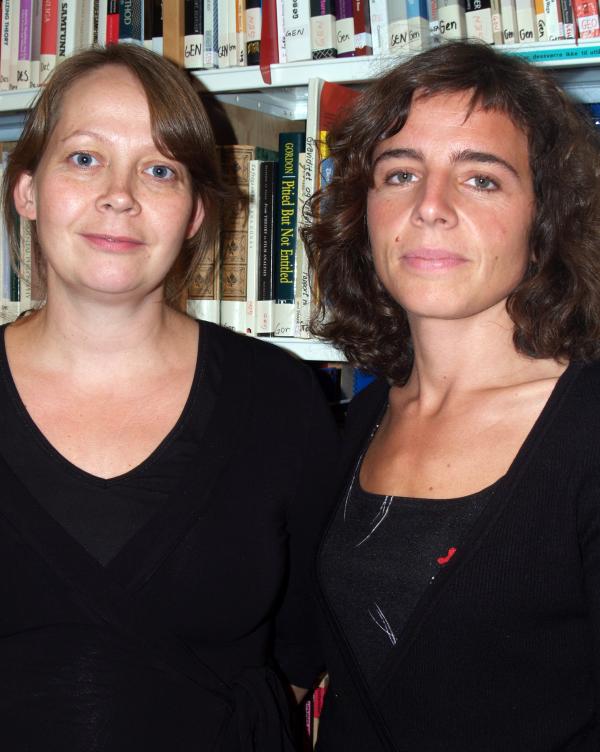
Together with around ten other researchers from the Nordic region they will create a common knowledge base for Nordic politicians.
Lack knowledge
According to the sociologists research on prostitution is in great demand, not least amongst politicians, who want more knowledge to help them develop a more effective policy.
– What kind of knowledge do they want?
– For one thing we know little about indoor prostitution. Both research and social effortshave traditionally focused on the drug-related prostitution in the streets. This is reflected in public policy, says Skilbrei.
– We probably also lack knowledge of the area of male prostitution. We don’t know how many that are involved, what characterises this prostitution or where the responsibility for this group lies. Male prostitution is absent from political debate. Combined with a lack of knowledge, this might have great consequences for the effect of our prostitution policy.
Public opinion
What does the average person think about prostitution? The media has conducted a few public opinion polls, but apart from this we know little about the public opinion in the Nordic countries, according to Skilbrei and Halmström. Exploring people’s attitudes will therefore be one of the sub-projects of”Prostitution in the Nordic Countries”, and is the only one that mainly will focus on producing knowledge.
– One thing is the attitudes displayed in newspapers and televised debates. But what do people outside the public debate think? Do policymakers see eye to eye with the man in the street on these matters? There are many unanswered questions, says Skilbrei, who works for the research institution Fafo (for more information about Fafo see link).
– It will be interesting to discuss different attitudes in such a politicised field, to see if people dare speak their minds, she adds.
It is not clear how the questions will be answered. The researchers will base the sub-projects on their own expertise and interests. The main point is that they start out with the same questions, but they can answer them in different, but complementary ways.
Critical of existing knowledge
Strengthening our knowledge base also implies a thorough look at what we already know about prostitution in the Nordic region.
– We need to discuss the knowledge upon which the public debate is based. How is this knowledge used and where does it come from? For instance, in Norway we agree on the extent of prostitution. But where do these figures really come from, asks Skilbrei.
– One of our tasks will be to question the established truths of the prostitution debate, says Holmström, who is a researcher at Malmö University.
Compare
Another important task will be to compare the existing research in each country, the researchers say.
– How do we count the victims of human trafficking? Do we only count those who end up in court, or do we count them somewhere else? As the methods probably vary, it can be difficult for policymakers to compare the countries, says Holmström. It is therefore important that the researchers discuss which definitions to use.
– Even the definitions of prostitution vary. With a common knowledge base it will be easier for the countries to cooperate and make use of each other’s experiences, says Skilbrei.
–There are both similarities and differences between the Nordic countries. An overview of these will be of great use, says Holmström.
– Particularly regarding legislation. In the Nordic region the Swedish prohibition against buying sex has been much debated, but the discussion is not always based on knowledge, she adds.
Not for or against the criminalisation of buying sex
However, neither of the project leaders promises that they will end up with any clear recommendations.
– Some politicians may want us to conclude for or against a prohibition against buying sex. But we can’t provide that within the scope of this project. Besides, it is always difficult to assess the practical and symbolic effects of a law. One might ask whether it is at all possible to clearly decide if a law is “working” or not, says Skilbrei, who promises that the project will deal with and discuss the known effects of the Swedish prohibition.
– The field of prostitution is one marked by disagreement and polarisation, also between researchers. How does the project deal with the different views?
–We don’t necessarily agree on prostitution policy, and luckily we don’t need to. Our task is to debate and question issues regarding prostitution, so having a variety of perspectives is only positive, says Skilbrei and Holmström.
The research project ”Prostitution in the Nordic Countries” will end up in a report which will be presented at a conference in the fall of 2008.
Translated by Vigdis Isachsen
- The project ”Prostitution in the Nordic Countries” is initiated by the Nordic Council of Ministers and carried out by the Nordic Institute for Women’s Studies and Gender Research (NIKK).
- Project leaders are May-Len Skilbrei (Norway) and Charlotta Holmström (Sweden).
- The project was introduced in August 2007 and will finish in the fall of 2008. The results from the project will be presented at a Nordic conference in the fall of 2008.
